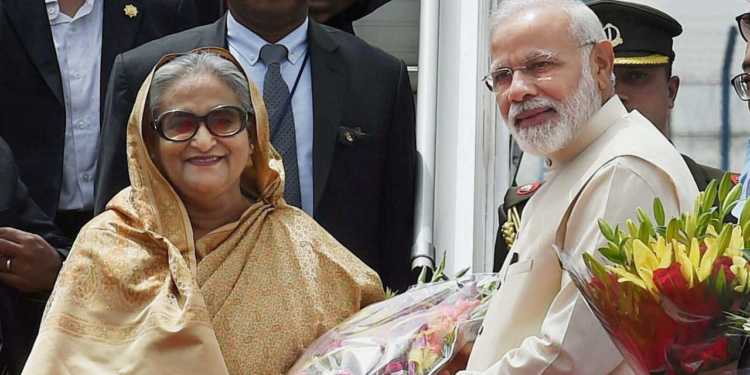Bangladesh has approved an agreement which allows India to use Chittagong and Mongla ports. This will make transportation of goods to northeastern parts of the country very easy, time and money saving. “The agreement would allow India to use Chattogram (Chittagong) and Mongla ports to carry goods to their northeastern states in a very short time. A draft of the communication network being built for connectivity between the Chattogram and Mongla ports has been approved for India’s signing. One of the provisions says that Nepal and Bhutan can be added to the agreement if they wish,” said Cabinet Secretary Shafiul Alam.
The transportation of goods through these ports will be charged under General Agreement on Tariff and Trade principles. The agreement will be effective for five years and automatically renewed after every five years unless any country wishes to cancel it on a notice of five months. “The four routes that come under the agreement are the Chittagong-Mongla Port to Agartala via Akhaura, Chattogram-Mongla to Daouki via Tamabil, Chattogram-Mongla to Sutarkandi via Sheola and Chattogram-Mongla to Bibek Bazar via Srimantapur,” said a Bangladeshi official. Currently, it takes almost 34 hours to cover 1,475 Km distance from Kolkata to Agartala, after opening of sea route, the travel time will be reduced to one third.
PM Modi launched India-Bangladesh Friendship Pipeline Project through video conferencing from New Delhi. “In just 10 days, we have launched five projects through video-conferencing. This speed, this momentum, was not possible without your strong and efficient leadership. I believe that in the coming days, we will continue to work with this feeling for the bright future of people of India and Bangladesh,” said Modi. India is helping Bangladesh in its energy requirements. Foreign Secretary Vijay Gokhle on his recent trip to Bangladesh signed an agreement to build a petro products pipeline from Siliguri to Bangladesh. This will help India to supply diesel from its Siliguri based refinery.
The relation between India and Bangladesh had been very strong since the country was founded with the help of India. The Line of Credit India provides to the Bangladeshi economy is almost $8 billion, the biggest it provides to any country. Beside the huge line of credit, India also gives financial aid to Bangladesh which has contributed to the country’s infrastructure, power and railway sectors. India gave concessions to Bangladesh in South Asian Free Trade Agreement (SAFTA), and thus the bilateral trade between the two nations is growing exponentially. The Northeast and West Bengal is a huge market for Bangladeshi products, and the Indian government has promised huge investment in infrastructure development in the Northeast which will make those markets more accessible for Bangladeshis. India is also building a railway line to connect the Eastern nation to Northeastern states, with almost all the money given by India.
There are large oil and gas reserves in eastern and southern areas of Bangladesh, while the Bay of Bengal, some part of which comes under its control, also has large natural gas reserves. Oil and Natural Gas Corporation (ONCG), an Indian company is involved in production and exploration of natural gas in Bangladesh. Bangladesh has also allowed India to ferry heavy machinery, turbines, and cargo through Ashuganj for Palatana Power project in southern Tripura. As much as 600 MW of power is flowing through the two existing inter-connections between India and Bangladesh. Additional power connections could enable Bangladesh to draw another 1,000 MW of power. Bangladesh would now require substantial foreign investment to broaden its export base which is stagnating due to protectionist measures that were taken by countries around the world. The pace of economic growth of the neighboring country should encourage Indian investors. Indo-Bangladeshi cooperation will be beneficial for both countries economically as well as strategically.

























